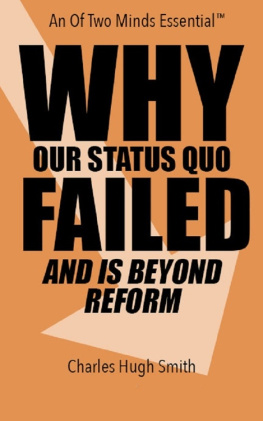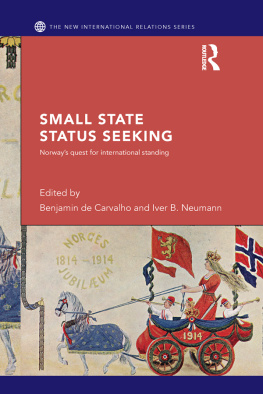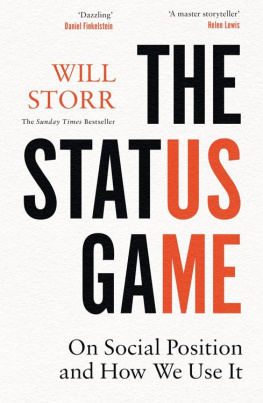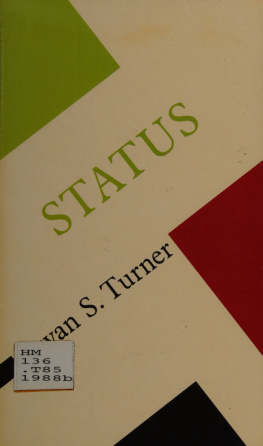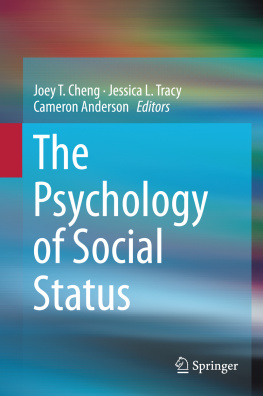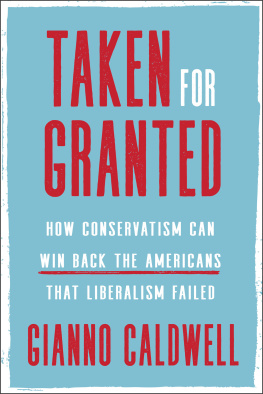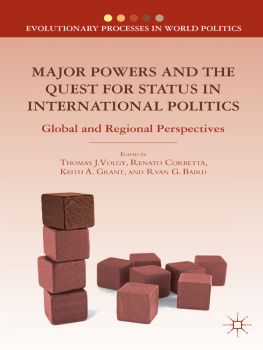That our status quo has failed and is beyond reform is self-evident to many, but the idea is far from mainstream. In this book, I will explain why the status quothe current pyramid of wealth and power dominated by the few at the tophas failed and why the system is beyond reform.
The failure is not rooted in superficial issues such as which political party is in power, or which regulations are enforced; the failure is structural . The foundation of the status quo has rotted away, and brushing on another coat of reformist paint will not rebuild the foundation or save the house from collapse.
Though were assured our status quo offers equal opportunity to all, the reality is our status quo exists to protect the privileges of the few at the expense of the many .
Those who benefit from our status quo naturally deny it has failed, for the reason that it has yet to fail them personally .
Why cant our status quo be reformed? There are two primary reasons: 1) those benefiting from the current arrangement will resist any reforms that threaten their share of the pieand any meaningful reforms will necessarily threaten everyones slice of the pie; and 2) reforms that actually address the structural flaws will bring the system down, as the status quo can only continue if its engine (permanent expansion of debt and consumption) is running at full speed. Once the engine stalls or even slows, the system collapses.
This is unwelcome news to privileged insiders, but it is good news for the planet and everyone else, as the collapse will clear the way for a much more sustainable decentralized system that is already visible to those who know where to look.
This is a topic I have explored in previous books, from Survival+ in 2009 to Why Things Are Falling Apart in 2012. Longtime readers will find familiar material here, but also new system-level advances.
Chapter One
Humanitys Six Integrated Problems
Why has the status quo failed? Lets begin by examining the six great problems facing humanity. These are not six separate problemsthey are all aspects of one world-system.
1. Entrenched poverty
2. An economic model of expanding consumption in a world of finite resources
3. An economic model that relies on wages to distribute the output of an economy
4. A political-economic model of centralized banks/states managing economies
5. An economic model that depends on ever-expanding credit, i.e. borrowing from the future, to fund todays consumption
6. A crisis of purpose and meaning
Each problem is complex, and describing each one in depth would require a shelf of books.
But lets keep things simple and describe only the key dynamics of each problem.
We can constructively view these six problems as facets of one central problem: sustainably managing the planets resources so the basics of prosperity are available to everyone in the global economy. Any real solution to this problem must be a fully integratedthat is, every aspect of the solution must reinforce all the other aspects.
These six problems are generally viewed through the prism of ideologies that were formulated in past eras: Keynesian deficit-spending social-welfare capitalism was developed in the 1920s and 1930s, and Marxism reached maturity in the late 19 th and early 20 th centuries. The critique of both ideologies posed by the Austrian School of economics was also developed by the mid-20 th century.
Regardless of the ideological starting point, Problems 2, 3, 4 and 5 are generally viewed as the solution to Problem 1, entrenched poverty. If consumption expands, so will wages, which lift people out of poverty by providing higher income. The government/ central state (lets simply call it the state from now on) alleviates whatever poverty cannot be addressed by rising consumption by taxing profits and wages and redistributing the revenue to the impoverished. In the socialist model, the state owns key enterprises and distributes the profits to alleviate poverty.
Credit is an integral part of growth and state spending. If taxes dont cover state expenditures, the solution is for the state to borrow money by selling bonds. This is known as deficit spending. If private consumption declines, the solution is to lower interest rates and make it easier for people and enterprises to borrow money.
The ideological differences boil down to debates over how best to spur growth of consumption and wages, and what role the state and its central bank play in boosting growth with easier credit.
If these four solutions are now problems in their own right, all the conventional means of addressing poverty will necessarily fail.
How did models that have been widely viewed as solutions become problems? Lets briefly explore each of the six problems.
Entrenched Poverty
We understand entrenched poverty intuitively: its a poverty that isnt solved with gifts of money or helicopter drops of food. Its a poverty born of systemic inequalities of capital, education and resources. We also intuitively understand that inequality generates poverty. If inequality is rising as a consequence of the way the status quo is structured, the only possible output of the status quo is poverty: not just a poverty of income, but of opportunity to own the sources of wealth, what is known as capital .
What is less intuitive is the connection between poverty and the conditions that are widely seen as the causes of poverty: overpopulation, resource depletion and predatory governments (oligarchies, theocracies and kleptocracies). We all understand that having more mouths to feed than the land can support leads to widespread hunger. Decades of birth records have found a direct correlation between birth rates and rising prosperity: as household education and income rates rise, birth rates plummet. So the best way to lower birth rates is alleviate the poverty of householdsespecially of women.
Poverty actually worsens resource depletion, as the pressure to earn a meager income today pushes the poor to mismanage resources. Global markets distort the value of resources, leading to their exploitation, to the detriment of sustainable production for the local populace.
In other words, poverty is intrinsically wasteful, as the tools, capital and knowledge needed to manage resources productively are as lacking as cash.
The stranglehold that elites have over national economies is a key cause of wide-spread poverty. When we read that one despot siphoned $70 billion out of his impoverished nation, our blood boils when we imagine all the good that could have been done had that money been invested in the local economy rather than being transferred to a Swiss bank account.

